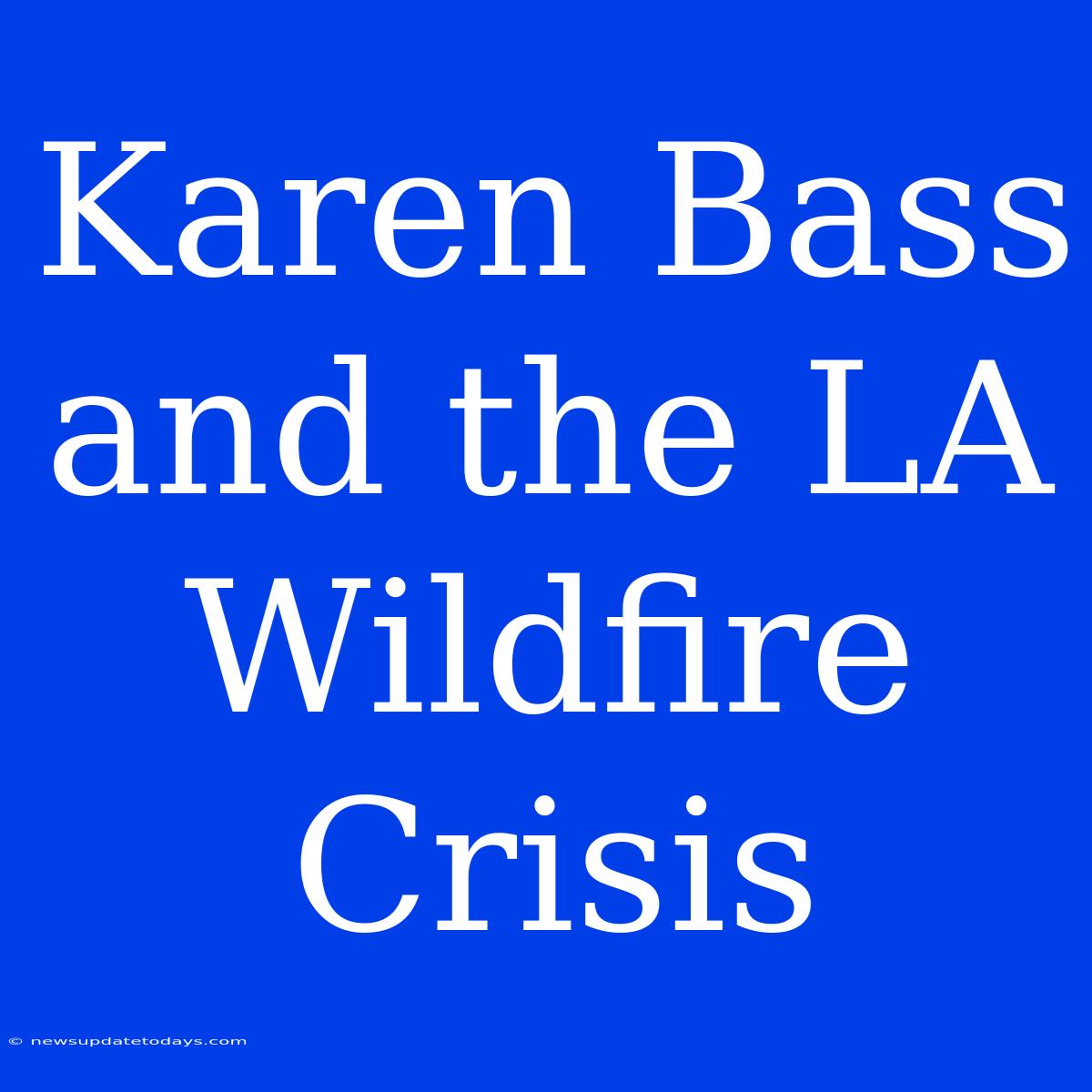Karen Bass and the LA Wildfire Crisis: A Test of Leadership
Los Angeles Mayor Karen Bass faces a monumental challenge: combating the increasingly frequent and devastating wildfires threatening the city. This isn't just about putting out fires; it's a complex issue demanding proactive strategies, substantial resource allocation, and effective community engagement. This article examines Mayor Bass's response to the crisis and analyzes the effectiveness of her approach.
The Severity of the Situation
The LA area's wildfire risk is amplified by several factors: prolonged drought, climate change, and the sprawling urban-wildland interface. Homes built near flammable vegetation are increasingly vulnerable, leading to significant property damage and, tragically, loss of life. The sheer scale of these wildfires necessitates a multi-faceted approach, demanding not only swift firefighting but also long-term preventative measures.
Mayor Bass's Response: A Multi-pronged Approach?
Mayor Bass has acknowledged the severity of the situation, outlining several key initiatives. These include:
- Improved Emergency Response: This involves bolstering the LA Fire Department's resources, including personnel, equipment, and technology. Faster response times and more efficient coordination are crucial in mitigating the damage caused by wildfires.
- Community Engagement and Preparedness: Educating residents about wildfire risks and promoting preparedness is paramount. This includes wildfire safety training, evacuation planning, and the creation of defensible spaces around homes.
- Long-Term Mitigation Strategies: This is perhaps the most crucial aspect, focusing on forest management, vegetation clearing, and the development of fire-resistant building codes. Investing in these preventive measures can significantly reduce the frequency and intensity of future wildfires.
- Collaboration with State and Federal Agencies: Effective wildfire management requires a collaborative approach. Working closely with state and federal agencies to secure funding, resources, and expertise is vital.
Challenges and Criticisms
Despite these initiatives, several challenges remain:
- Funding Limitations: Combating wildfires requires significant financial resources. Securing adequate funding from the city budget and external sources remains a constant struggle.
- Bureaucratic Hurdles: Navigating the complexities of city bureaucracy can slow down the implementation of crucial projects and initiatives.
- Public Perception and Trust: Maintaining public trust and confidence during a crisis is essential. Transparent communication and effective action are crucial for ensuring the public feels safe and supported.
The Road Ahead: A Long-Term Commitment
The LA wildfire crisis demands a sustained commitment from Mayor Bass and the city. While immediate responses are vital, the long-term focus should be on prevention and mitigation. This includes investing in:
- Advanced early warning systems: Providing residents with timely and accurate alerts can significantly improve evacuation efforts and minimize casualties.
- Improved infrastructure: Investing in firebreaks, improved water infrastructure, and resilient housing designs can dramatically enhance wildfire resilience.
- Community resilience building: Empowering communities to proactively engage in wildfire preparedness through education and community-based initiatives.
Conclusion: A Defining Test
The LA wildfire crisis presents a defining test for Mayor Karen Bass's leadership. Her success will be measured not only by her response to immediate emergencies but also by her ability to implement effective long-term strategies to mitigate future risks. The city's future safety and well-being hinge on a proactive, comprehensive, and community-focused approach to wildfire management. Only time will tell if Mayor Bass's vision can effectively address this growing threat.

